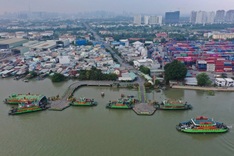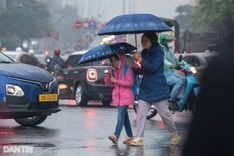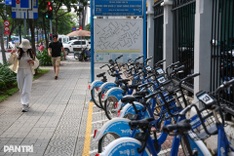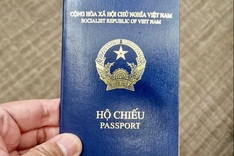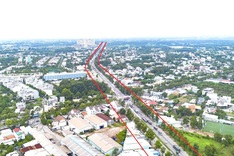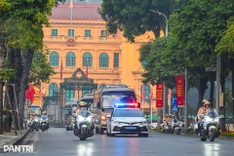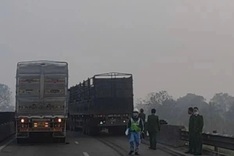Plastic bags will be taxed next year in the government’s attempt to reduce its use and raise environmental awareness but experts and consumers are afraid this target cannot be achieved.
 |
| Vietnam to introduce plastic bag tax to protect evironment |
As from January 1, 2012, a tax rate of up to VND50,000 (USd2.5) will be imposed on every kilogram of plastic bags, with the government aiming to reduce the use of this product at supermarkets and shopping centres nationwide by 40 percent by 2015.
In fact, most Vietnamese consumers are yet to get used to using non-plastic bags and find it a disadvantage if they have to bring the non-plastic bags with them or to buy them from the supermarket.
In Ho Chi Minh City, 19.4 percent of the supermarkets and traditional markets said they would not willingly join the programme to reduce the use of plastic bags unless it was forced by the government.
Supermarkets bear the grunt
Do Thi Thuy Hang, deputy director of quality management at Saigon Co.op, said all of the supermarkets were currently delivering plastic bags to consumers for free.
“If a supermarket charges its customers on the plastic bags or forces them to buy [the bags], consumers will all go to another supermarket where plastic bags are delivered for free,” she said.
“Hence, we have to accept to pay the taxes to keep customers.”
She said the plastic bag taxation would thus fail to raise environmental awareness among consumers and the number of plastic bags would not be reduced either, adding that the government should ban all supermarkets from delivering plastic bags.
“This will help us actually achieve the environmental protection target and prevent unhealthy competition among the supermarkets.”
Her idea was shared by many supermarkets, which said none of them would voluntarily stop delivering plastic bags for free unless there was a regulation requiring them to do so.
Le Van Khoa, director of the Ho Chi Minh City Department of Natural Resources and Environment’s Waste Recycling Fund, also said the government should encourage consumers to use alternative bags.
“It will be difficult to persuade consumers to reduce the use of plastic bags if the government only focuses on taxing the plastic bags without letting the consumers know what the tax will be used for,” he said.
However, Nguyen Trung Viet, head of the solid waste management of Ho Chi Minh City Department of Natural Resources and Environment, said the initial difficulties when the tax law takes were inevitable.
“We still have to impose the tax on plastic bag first and make further amendment later,” he suggested.

